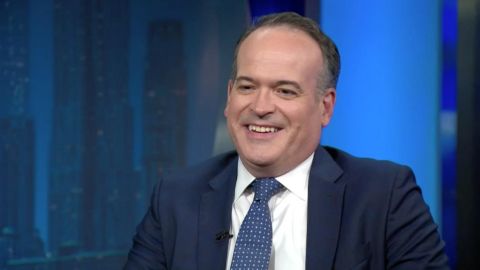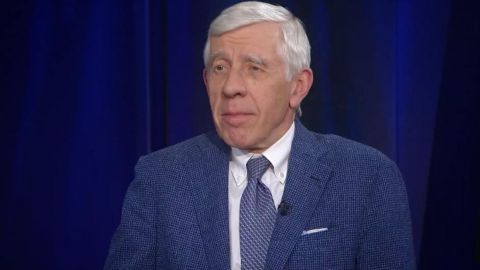Read Transcript EXPAND
AMANPOUR: But just to remind us, he would tattoo himself every time he committed, I mean, essentially, a hate crime.
JENKINS: And considering how many tattoos there are he had on his body or — and still has on body, that will give you an idea of how bad he was. He was one of the top enforcers of the Vinlanders Social Club, one of the nastiest individuals out there. I have friends of mine who are still scared of him today. So, for him to make this transformation over the past 10, 11 years is remarkable to me. I think it’s a testament to him.
AMANPOUR: And I heard it was really medically difficult, if not impossible, to remove every single one of them from all over his body. You could see his arms and his torso and everything is painted.
BELL: I think — well, did it take two years?
JENKINS: It took about two or three years, yes.
BELL: Yes, yes, yes.
JENKINS: Now, he still has some tattoos but they’re not any of the more racially sensitive tattoos, of course. So, he still has some on his body. It would just him take too much for that. But I was there for one of the sessions and I could just tell you, it is — it was intense. It was definitely intense.
BELL: I mean, listen, when you choose to do that to your body, cover it with hate, in an attempt to intimidate people and scare people, to isolate yourself from the world, and then you change your mind, that’s — you know, you put yourself in that position. I’m so kind of glad that we used his treatments as milestones within the film. That — it was important for me that the character actually goes through some sort of physical pain. I really do think that was a crucial element to me inside of the story.
JENKINS: And he did.
BELL: I know. You can see. He’s mewing what he — you know, what he chose. But he’s also been given a gift. You know, I went to meet him to research the role and spent a lot of time with him. And when you look at his face, if you didn’t know beforehand that this was there, you would never know. I mean, you can kind of see a little skin discoloration here or there, but you just wouldn’t know. So, he has been given an opportunity to reclaim his life and change his life forever. And I think when he looks in the mirror, he reckons with the guilt of the things he’s done and he must realize he’s been given just an incredible opportunity to kind of start again.
AMANPOUR: And what does he do now? What is his life? Where is he?
JENKINS: I mean, you know, he’s still dealing with life as a — he’s still going through the redemptive process and he is somebody that is still also learning. He’s still learning about life outside of what he knew for 13 years. And we talk every now and again and we’re always joking around about this and that. Not just music but about the various things that we see going on. And we’re definitely getting a kick out of being in this element.
About This Episode EXPAND
Jack Straw and Christiane Amanpour discuss a critical week in U.K. politics. Jamie Bell and Daryle Lamont Jenkins join the program to discuss the new film “Skin.” Walter Isaacson sits down with The Wall Street Journal’s editor-in-chief Matt Murray to discuss how to win back trust in the media and the ongoing challenges facing journalists today.
LEARN MORE


